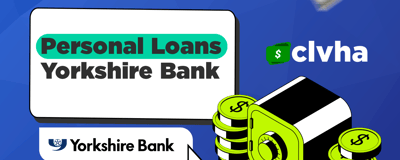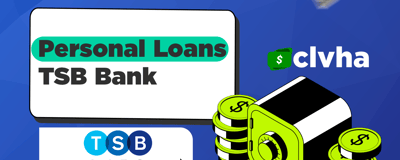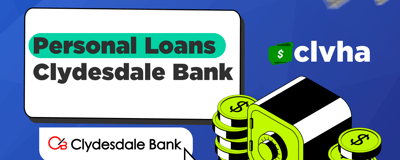In today's financial landscape, many individuals grapple with the burden of loans. Whether it's a mortgage, student loan, or credit card debt, repaying these loans can seem daunting. However, the idea of paying off loans early has garnered attention as a potential strategy to achieve financial freedom. This article delves into the pros and cons of paying off loans early.
Understanding the advantages and disadvantages can help individuals make informed decisions about their financial future. By exploring these aspects, we aim to provide clarity on whether early repayment is the right choice for you.
Advantages of Paying Off Loans Early

One of the most significant benefits of paying off loans early is the interest savings. Loans, especially those with high-interest rates, can accumulate substantial interest over time. By eliminating the debt early, borrowers can avoid paying significant amounts in interest, thereby saving money in the long run.
Furthermore, paying off loans early can provide peace of mind and financial stability. The psychological burden of debt can be overwhelming, and removing that burden can alleviate stress and enhance overall well-being. Individuals often report feeling a sense of relief and freedom once their loans are paid off.
- Reduced overall interest costs
- Increased financial security
- Improved credit score
- More disposable income for other financial goals
- Less stress and anxiety related to debt
In addition to the financial benefits, paying off loans early can also open up new opportunities for investments and savings. With fewer financial obligations, individuals can redirect their funds towards retirement savings, emergency funds, or other investments that can contribute to long-term wealth creation.
Moreover, being debt-free enhances one’s flexibility in life choices, such as pursuing new careers, starting a business, or traveling, without the heavy weight of debt holding them back.
Disadvantages of Paying Off Loans Early

Despite the apparent benefits, there are drawbacks to consider. One of the primary disadvantages is the potential for prepayment penalties. Many lenders impose fees for early repayment, which can negate the savings gained from paying off the loan sooner.
Additionally, there may be better uses of funds than paying off low-interest debt early. For instance, the money could be allocated towards investments or retirement accounts, which could yield higher returns over time than the interest saved from paying off a loan.
- Prepayment penalties from lenders
- Loss of potential investment growth
- Reduced liquidity for emergencies
- Impact on financial flexibility
In certain situations, focusing solely on paying off loans can also hinder the ability to diversify investments. Individuals may find themselves cash-strapped and unable to take advantage of new opportunities that require liquidity.
Factors to Consider Before Paying Off Loans Early

Before deciding to pay off loans early, it's crucial to evaluate several factors. One important aspect is the interest rate of the loan. If the rate is high, it may make more sense to prioritize early repayment. Conversely, if the rate is low, investing that money elsewhere might yield better returns.
Another factor to consider is the individual's overall financial situation. Are there emergency funds in place? What are the current expenses? A thorough assessment will help determine if early repayment aligns with the person's financial goals.
- Interest rates of current debts
- Existence of prepayment penalties
- Overall financial health and liquidity
- Future financial goals and investment plans
Ultimately, a comprehensive financial analysis will guide individuals in making informed decisions about whether to focus on paying off loans early or allocating funds toward other financial opportunities. Assessing one's priorities and overall financial landscape is essential to making the right choice.
How to Pay Off Loans Early

Paying off loans early requires a strategic approach to ensure financial stability while taking on this endeavor. Start by reviewing your current loan agreements to identify any prepayment penalties and evaluate whether the savings outweigh the costs of paying off the loan early. This knowledge can inform your decision-making and budgeting adjustments.
Next, create a detailed budget that allows you to allocate extra funds towards loan repayment. Identify areas where you can cut back on discretionary spending, ensuring that every penny counts toward achieving your goal of early repayment. By staying disciplined with your budget, you can accelerate your loan payoff timeline.
Additionally, consider reallocating windfalls or bonuses directly towards your loans. Whether it's a tax refund, year-end bonus, or a gift, using unexpected financial gains to reduce debt can significantly shorten the duration of your loans.
- Review loan agreements for penalties
- Create a budget to allocate extra funds
- Make bi-weekly or extra payments when possible
- Use windfalls and bonuses for loan payment
Establishing a repayment strategy and maintaining financial discipline can lead to a successful journey towards paying off loans early, ultimately resulting in greater financial flexibility.
Conclusion

In conclusion, paying off loans early can offer significant benefits, including savings on interest, reduced stress, and increased financial independence. However, it's essential to weigh the pros and cons carefully, considering personal financial situations, potential penalties, and investment opportunities.
Ultimately, the decision should align with one's long-term financial goals and preferences. By taking a balanced approach, individuals can navigate the complexities of loan repayment and make the best decision for their financial future.














